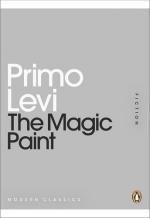|
This section contains 6,951 words (approx. 24 pages at 300 words per page) |

|
SOURCE: “‘Per Mia Fortuna …’: Irony and Ethics in Primo Levi's Writing,” in The Modern Language Review, Vol. 92, No. 2, April, 1997, pp. 337-47.
In the following essay, Gordon examines the different types of irony in Levi's work.
One of the most persistent problems thrown up by writing and reading about the Holocaust is that of style and its relation to ethics.1 The ungraspable quiddity of the event displaces interpretational energy away from the operations of writing and onto the act of writing itself. To write is an act of bearing witness and of record. It betokens statements such as ‘I am’ and ‘I saw’ and ‘these things were’, and thus assigns to writing a powerful quality of material presence that in itself is prior to and defies stylistic analysis. In a more general sense also, to write is to assert one's humanity in the act of describing its stripping away...
|
This section contains 6,951 words (approx. 24 pages at 300 words per page) |

|


